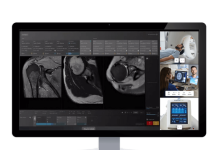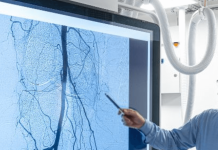Micro-X is set to introduce its next-generation Rover mobile X-ray system at the upcoming Radiological Society of North America (RSNA) Annual Meeting.
The launch marks the first international presentation of the enhanced platform, which builds on the company’s motor-free, lightweight mobile imaging expertise.
Related: XCath reports first human use of neuro-endovascular surgical robot
The X-ray system is claimed to incorporate several innovations aimed at improving clinical workflow and imaging capabilities.
The Rover’s key enhancements include the integration of the latest Lumen glass-free “high-resolution” detector, an in-bin charging feature for improved readiness, and a high-definition touchscreen interface.
The system’s compact design is intended to assist in environments where space is limited or crowded.
According to the company, the Nano Electronic X-ray Technology is used in the Rover, which is designed to provide digital radiography with ease of movement across hospital floors and lifts, and requires less maintenance.
The new in-bin charging feature is aimed at cut downtime and eliminate the requirement for external cables.
Micro-X CEO Kingsley Hall said: “The updated Rover reflects our continued commitment to designing mobile imaging systems that make clinicians’ work easier and more efficient.
“By combining a next-generation detector, smarter charging, and an expanded user interface with the same ultra-lightweight mobility, we’re redefining what’s possible for bedside and point-of-care X-ray imaging inside hospitals and clinics worldwide.”
Alongside the Rover, Micro-X will display two other medical imaging developments at RSNA 2025, which is to be held from 30 November to 3 December.
One is a full-scale model of a portable full body CT scanner, developed with ARPA-H as part of the PARADIGM programme.
This concept is said to show how miniaturised X-ray sources could be used in military, trauma, sports, or remote medical settings.
The second development is a full-scale model of a Head CT scanner intended for stroke care.
This compact, point-of-care scanner is designed to support immediate imaging for acute stroke cases, regardless of patient location.
Human imaging trials with the Head CT scanner are expected to begin in Australia shortly, pending final regulatory approval.




